MercoPress. South Atlantic News Agency
Tag: SELIC
-
Thursday, August 30th 2012 - 04:32 UTC
Brazil cuts benchmark rate for ninth time running to an all time low of 7.5%
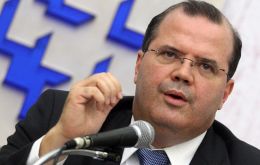
Brazil’s central bank cut the benchmark interest rate for the ninth straight time on Wednesday to an all-time low of 7.5%, as policymakers keep up efforts to bolster a slow-moving economy which is the world's sixth-largest.
-
Saturday, August 18th 2012 - 05:57 UTC
Central bank announces first signs of Brazilian economy recovery
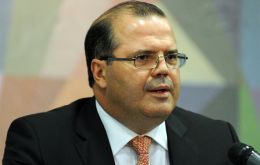
Brazil's economy enjoys sound fundamentals for sustainable growth, with an economic expansion likely to pick up speed in the next few quarters, Central Bank President Alexandre Tombini said at a business conference Friday.
-
Wednesday, August 8th 2012 - 06:47 UTC
Poll shows deeper interest rates cuts expected from the Brazilian central bank
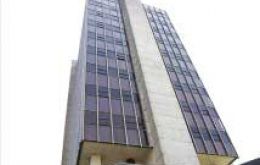
Weak economic growth will likely prompt Brazil's central bank to cut interest rates deeper than previously expected this year, a weekly central bank survey of economists showed on Monday.
-
Monday, July 23rd 2012 - 08:55 UTC
Brazil corrects IMF: outdated facts, credit expansion slower and inflation under control

The Brazilian government questioned as outdated the latest IMF report, released Friday July 20, in which the Fund calls for more domestic savings and greater attention to inflation.
-
Thursday, July 19th 2012 - 23:35 UTC
Further ‘parsimonious’ monetary-easing anticipated from Brazilian central bank
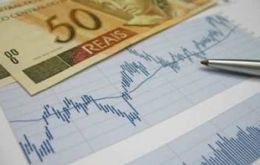
Brazil’s central bank reiterated that inflation will continue to slow toward its target, signalling it will further reduce interest rates that have already been cut to a record.
-
Thursday, July 12th 2012 - 07:27 UTC
Brazil lowers benchmark rate for eighth straight time to 8%

Brazil’s central bank cut its benchmark interest rate for the eighth straight time and signaled it will continue to lower borrowing costs, as spillover from a global economic slowdown limits inflation risks.
-
Friday, July 6th 2012 - 01:48 UTC
Brazil’s use of installed industrial capacity falls for a fourth consecutive month
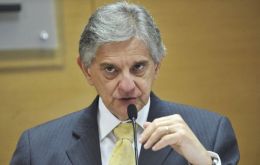
Brazil's use of installed industrial capacity fell for a fourth consecutive month in May, alongside a decline in industrial sales during the period, Brazil's National Confederation of Industries, or CNI, said Thursday.
-
Thursday, May 31st 2012 - 05:46 UTC
Brazil cuts interest rate for the seventh time to a record low of 8.50%

Brazil's central bank cut interest rates on Wednesday for the seventh straight time to a record low 8.50%, moving into uncharted territory in a bid to shield a fragile recovery from a gloomy global outlook.
-
Monday, May 14th 2012 - 05:38 UTC
“Interest rate has been falling not to please Dilma”, says Brazil Central bank chief

The central bank remains independent and the current interest-rate cutting cycle is driven by specific economic factors, not pressure from President Dilma Rousseff, Brazil’s central bank President Alexandre Tombini said in an interview in the Sunday edition of O Estado de S. Paulo.
-
Friday, May 4th 2012 - 17:26 UTC
Brazil applies radical changes to deposits policy to further cut basic interest rates

Brazil will cut returns on new deposits to savings accounts, thereby paving the way for the central bank to further cut its benchmark lending rate, Finance Minister Guido Mantega announced.
